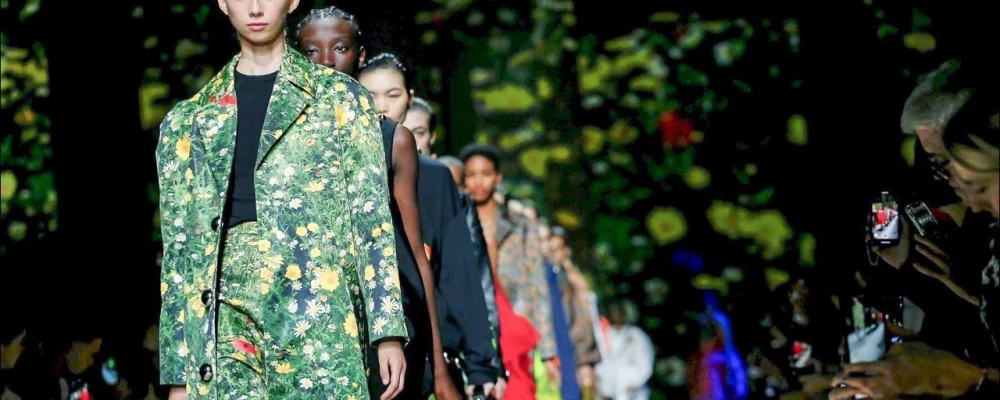
A new direction for Fashion Weeks? An eco-roundup of SS20
Fashion Weeks around the world are associated with excess and frivolity – traditionally the two months of every year when unthinkable quantities of money, energy and resources are poured into just 15 minutes for each fashion house.
But in the wake of this September’s shows, could we be seeing a more sustainable agenda shining brightly on the horizon?
This is by no means the first season where sustainability and the environment have featured prominently, but instead of just up-and-coming designers making a stand, the big names in fashion were also driving eco-messages through with their collections.
The turnaround is almost certainly a defensive rally towards the climate emergency declared by high-profile Swedish activist Greta Thunberg and the threats by eco-activist group Extinction Rebellion to shut down London Fashion Week entirely. Increased engagement among young people with the climate crisis in recent months, has had big brands and retailers trembling on losing out on this valuable target market due to poor eco-credentials.
The tone was set in New York, with a reduced fashion week schedule – cut from seven days to five on the appointment of Tom Ford to the CDFA. Ostensibly this was not implemented to cut down NYFW’s carbon footprint, but some have argued that fewer days means less energy created from the shows. But does it just mean more resources packed into a tighter schedule?
After larger brands like Alexander Wang stepped back from the standard runway calendar and Calvin Klein decamped altogether, the stage was open for emerging designers with sustainable and ethical values to take up a more prominent role at NYFW. Khaite and Chromat were among the ones-to-watch.
At London Fashion Week, the British Fashion Council launched a new award, the Queen Elizabeth II Award for British Design, to recognise a fashion designer demonstrating “strong community and/or sustainable design practices”. The inaugural award went to fashion and print designer Richard Quinn.
In Milan, Francesco Risso saw the Global Climate Strike which coincided with Marni’s show as an opportunity rather than a hindrance. The collection used repurposed and recycled fabrics, made from plastic bottles and material from its extensive archive. (Their Good On You rating may tell another story (last rated Jan 2019), with the brand using fur and exotic animals skins and evidencing poor transparency ratings.)
And in Paris, Stella McCartney took her crown as the Queen of sustainable fashion by facing head-on some of the environmental and ethical issues raised in a roundtable before her show. Rather than shying away from the debate, she invited, among others Clare Farrell, a coordinator at Extinction Rebellion to the panel.
Let’s not forget too that Stockholm took the decision earlier this year to pause their Spring Summer 2020 shows until they find a more environmentally viable alternative. This paves the way for Vogue’s prediction, that by Spring Summer 2021, sustainability will permeate further than just the collections and will guide the formats of the Fashion Weeks and shows themselves.
Fashion, by its very nature, is driven by trends, so we should err on the side of caution by taking this sustainable outlook as the new normal. But equally, fashion is part of something much bigger – and if global movements continue to shape public attitudes towards the environment, the role of Fashion Week may have no choice but to follow suit and adapt in its purpose to provide a sustainable platform for designers and consumers to engage with fashion.
Equally, big brands driving sustainability might also raise a few eyebrows. However, in some cases – and as long as they’re not greenwashing – using their higher platform and louder voice, these brands have the power to make a change for the better. And after all, it’s better they do something than nothing (although we’re pretty sure they could always do more!)
Did you take any sustainable learnings away from this season’s shows? What do you think is in store for mainstream fashion designers? Get in touch!
For tips on how to work with this season’s latest trends as a sustainable design business, check out our Trend Forecasting Masterclass. Not a Professional Member? Find out how to sign up today.
